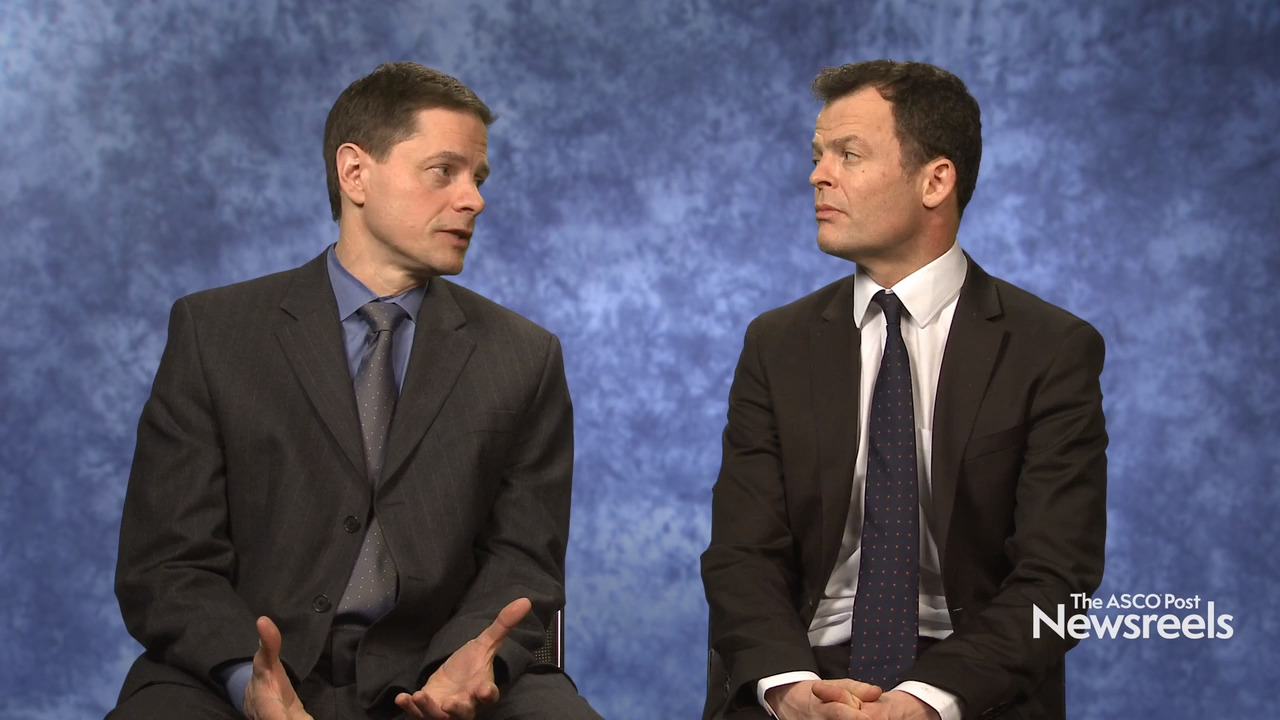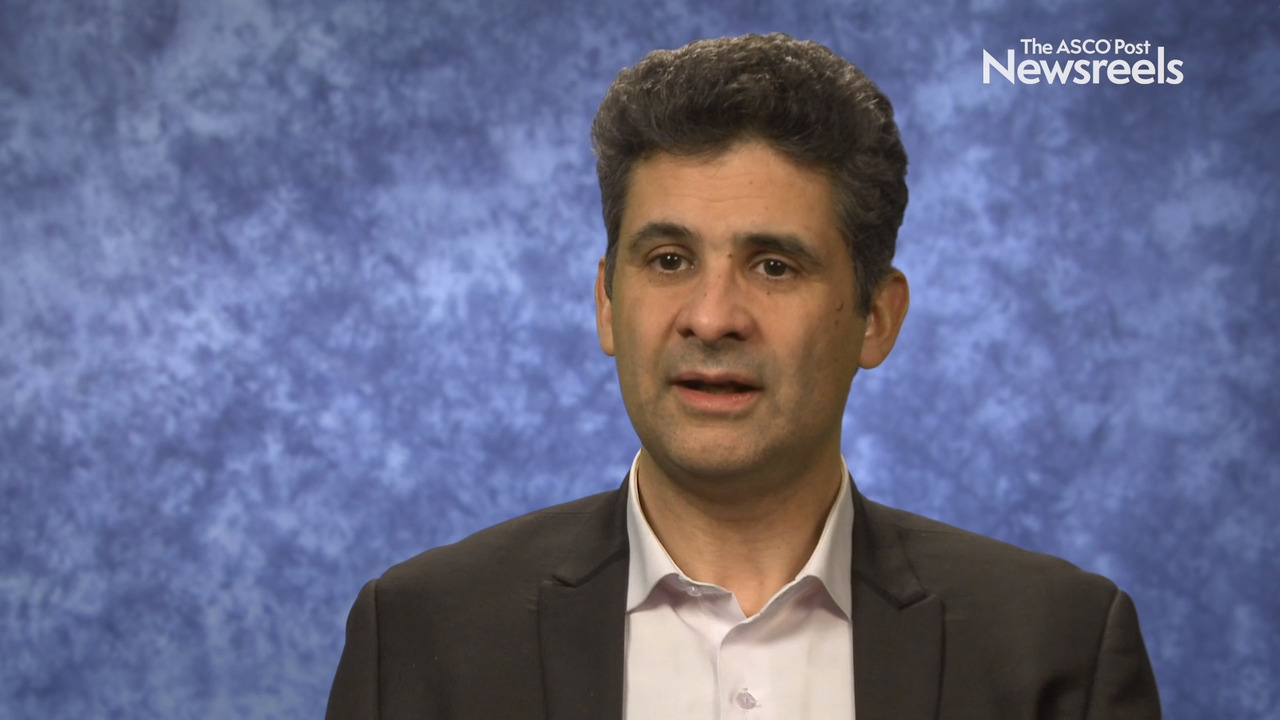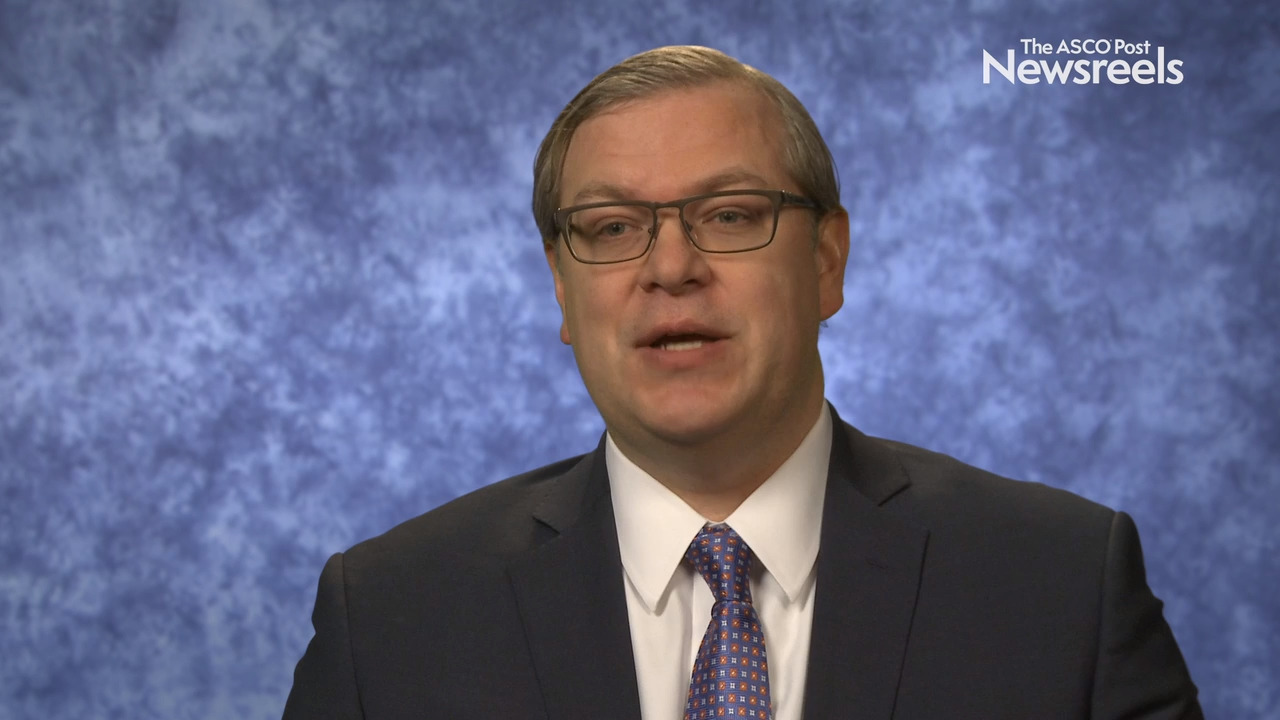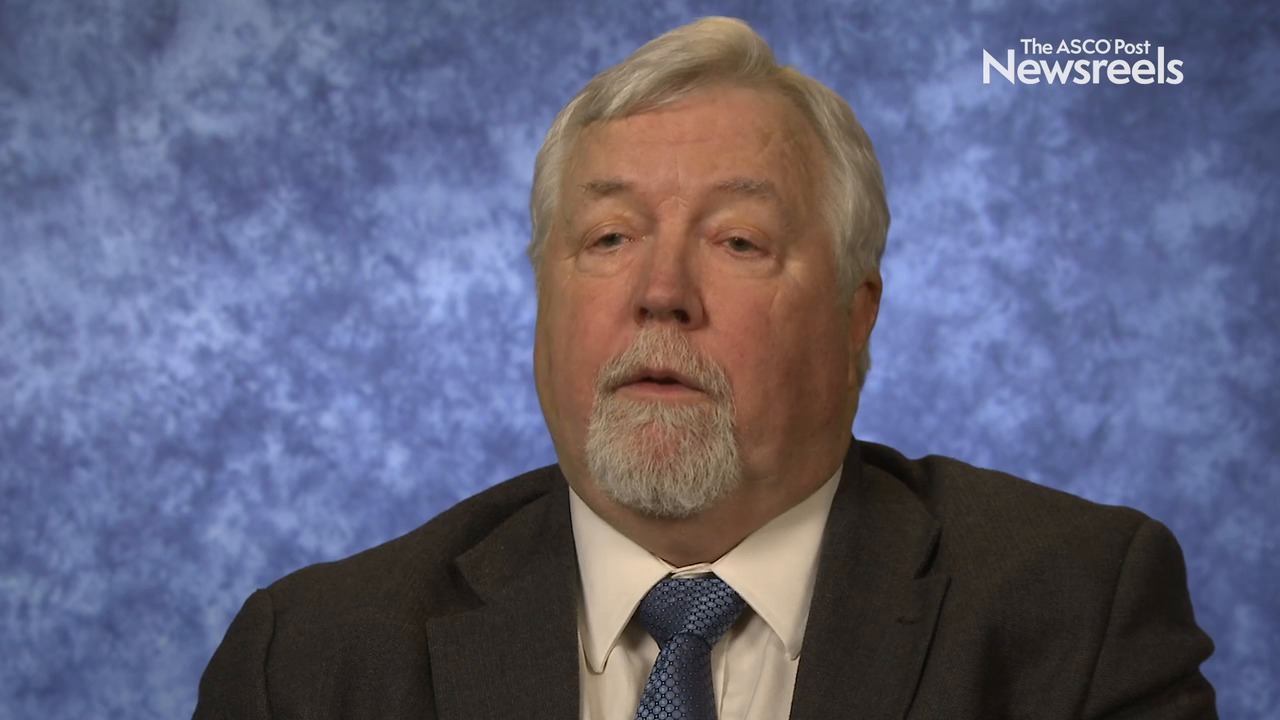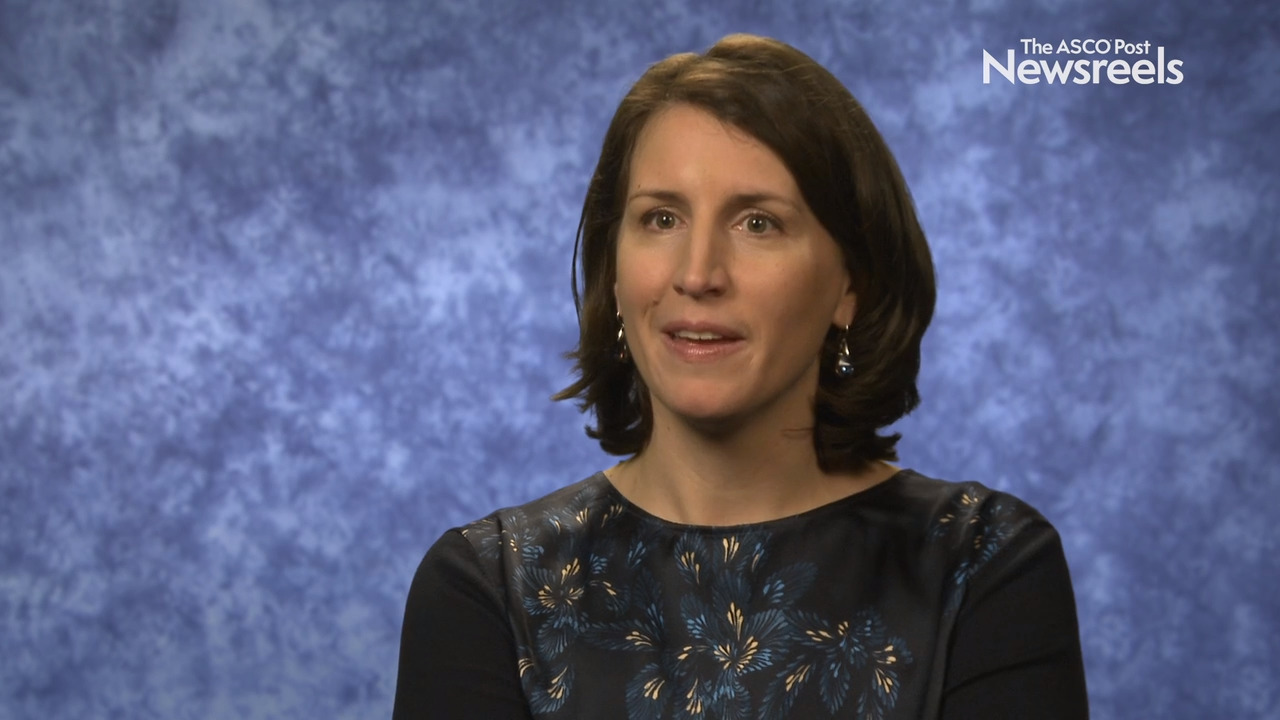Rana R. McKay, MD, on Renal Cell Carcinoma: Results From a Trial on Atezolizumab and Bevacizumab
2019 Genitourinary Cancers Symposium
Rana R. McKay, MD, of the University of California, San Diego, discusses phase II study findings on atezolizumab and bevacizumab in non–clear cell renal cell carcinoma and clear cell renal cell carcinoma with sarcomatoid differentiation (Abstract 548).
Brian I. Rini, MD, of the Cleveland Clinic Taussig Cancer Institute, and Thomas Powles, MD, PhD, of Queen Mary University of London, discuss their study findings on pembrolizumab plus axitinib vs sunitinib as first-line therapy for locally advanced or metastatic renal cell carcinoma (Abstract 543).
Karim Fizazi, MD, PhD, of the University of Paris-Sud and Gustave Roussy, discusses final phase III findings on men with newly diagnosed, high-risk, metastatic, castration-naive prostate cancer who were treated with abiraterone acetate plus prednisone added to androgen-deprivation therapy (Abstract 141).
Jason A. Efstathiou, MD, DPhil, of Massachusetts General Hospital, discusses the debate over treating muscle-invasive bladder cancer with radical cystectomy vs trimodality therapy.
Craig R. Nichols, MD, of the Testicular Cancer Commons and the SWOG Group Chair's Office, discusses the superior outcomes obtained at high-volume centers, the impracticality of referring all patients to such centers, and the international efforts to develop virtual collaborations on salvage management and post-chemotherapy surgery.
Laurence Albiges, MD, PhD, of Gustave Roussy, discusses findings on the safety and efficacy of nivolumab used in a “real world” prospective study on metastatic renal cell carcinoma (mRCC). This research was conducted after nivolumab was approved for the treatment of mRCC following failure of one or two tyrosine kinase inhibitors (Abstract 542).
